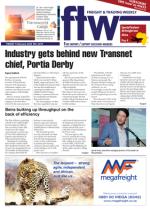Cash-strapped South African companies unable to pay debts will increasingly face business restructuring – a practice that is fast gaining ground in the country.Relatively new to the South African legal system, the restructuring of companies in financial distress is on the increase globa l ly.In December last year SA A became the first state-owned entity to be placed in business rescue. Last week logistics major Ziegler SA launched an urgent court application to have SA Express, also a state-owned entity, placed under business rescue. Not only that but it wants the airline’s 12-member board held accountable for opposing the application and have asked the court to order them to pay all of the legal fees out of their pockets.Ziegler SA is owed a whopping R11.3 million by SA Express which is technically already considered insolvent as its current liabilities exceed its assets. Not to mention that it recorded a loss of R591 million during the 2018/19 financial year.“Business rescue proceedings in South Africa are relatively new,” said Simon Chetwynd-Palmer of Shepstone and Wylie. “What is hoped to be achieved through this is that an outsider appointed as the business rescue practitioner takes over, on an interim basis, the management of a company which is unable to pay its creditors. Working with the directors, the practitioner seeks to develop a turnaround plan with a v iew t o d ischarging existing debt over a period of time, and ensuring a returned profitability.”One of the biggest challenges, however, says Chetwynd-Palmer, is that the practitioner is generally required to raise interim funding to enable the distressed company to continue its operations, pending a return to profitability.“In a case such as SA Express, one expects very considerable funding is required to allow the company to continue its operations. If the business rescue is successful service providers such as Ziegler SA will get paid - but usually over a very lengthy period of time and only after post-commencement loans are repaid.”Lawyers agree that much of business rescue remains untested in South Africa – and while the system is slowly maturing, many matters are still likely to land in court.According to Werksmans Attorneys, directors who allow companies to continue to trade in a position of insolvency or financial distress and who do not take the necessary steps will have to recognise that such trading may be the subject matter of far more intense scrutiny than in the past. Directors also need to be aware of the consequences and the circumstances in which they can and will be held personally liable, a position in which the SA Express board of directors now finds itself.While the court has reserved judgement in the SA Express case and it remains unknown whether they will be held accountable for the state of the airline or even if it will be placed under business rescue, the airline has a fight on its hands.According to Chetwynd-Palmer, over the past ten years or so courts have been taking a stronger position against “delinquent” directors, ie, those who act irrationally and irresponsibly.
INSERT: If the business rescue is successful Ziegler SA will get paid – but usually over a very lengthy period of time.– Simon Chetwynd-Palmer

